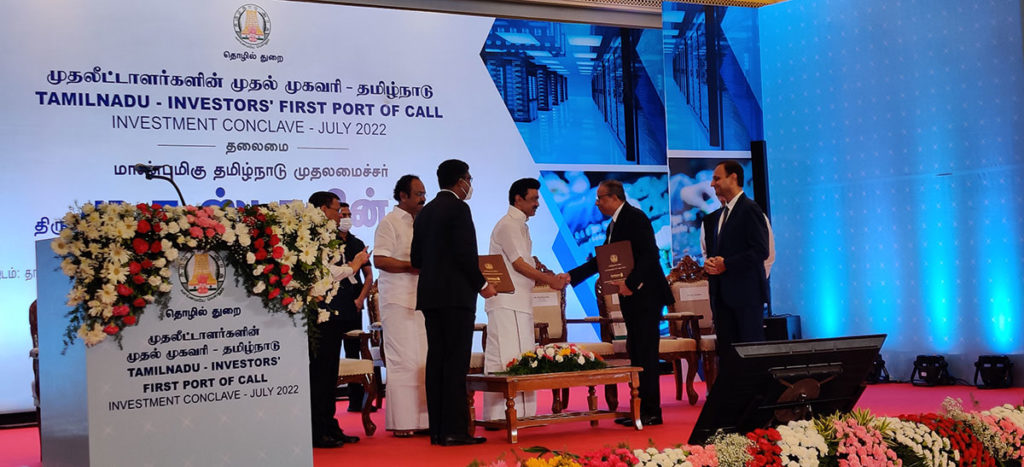
Indian energy giant Tata Power has signed a Memorandum of Understanding (MoU) with the Indian state government of Tamil Nadu to invest roughly INR3,000 crores (US$380 million) in setting up a 4GW cell and 4GW module factory in the state.
To be located in the Tirunelveli District of Tamil Nadu, the facility will be built over a period of 16 months and will be located on a greenfield development site.
Unlock unlimited access for 12 whole months of distinctive global analysis
Photovoltaics International is now included.
- Regular insight and analysis of the industry’s biggest developments
- In-depth interviews with the industry’s leading figures
- Unlimited digital access to the PV Tech Power journal catalogue
- Unlimited digital access to the Photovoltaics International journal catalogue
- Access to more than 1,000 technical papers
- Discounts on Solar Media’s portfolio of events, in-person and virtual
It will produce both mono-PERC bifacial and n-Type TOPCon modules, both of which will be “high wattage modules with industry-leading efficiencies,” Tata Power said.
The factory will also implement ‘Autonomous Mobile Robots (AMR)’, which use lasers and cameras for transporting parts and will seek to implement industry 4.0 standards, which Tata Power said would lead to a “fully interconnected factory comprising smart manufacturing tools and technologies.”
There will still be a need for human workers, however, and Tata Power said over 2,000 people will be employed at the site, with the majority of these being women.
“Tata Power Solar’s new production facility is being set up with the support and assistance of Tamil Nadu Government, will help to meet the rising demand for clean energy solutions in the country apart from providing huge employment opportunities,” said Praveer Sinha, CEO and managing director of Tata Power.
While it was unclear from the announcement whether Tata Power would use the cell and module capacity to service its own projects – it recently announced “India’s largest floating solar park” as well as commissioning the country’s “largest single axis solar tracker system” – it will be a boon to the Indian solar market which has been under increasing pressure following price rises.
Inflation is already causing significant disruption across India’s solar industry, with sustained rises in module prices, commodity price inflation and soaring freight rates causing massive upward pressure on Indian modules, with prices up 38% on mid-2020 levels. Many developers have resorted to stockpiling modules amid supply fears.
Module prices in Indian have soared in recent months following the implementation of the country’s basic customs duty (BCD) on solar cells and modules, currently standing at 25% and 40%, respectively, with “no plans to change this”.
As India’s solar sector grapples with a range of disrupting factors, the Institute for Energy Economics and Financial Analysis (IEEFA) has said solar investments in the country will need to more than double if it is to meet its climate targets.
IEEFA energy economist and India lead, Vibhuti Garg, said the energy transition in India will require the government to act “as an enabler by rolling out ‘big bang’ policies and reforms to accelerate the deployment of renewable energy.”
“This means not only increasing investment in wind and solar power capacity, but also in creating an entire ecosystem around renewable energy,” she said.
The MoU was signed by Thiru Krishnan, additional chief secretary to Government of Tamil Nadu, Industries Department and Sinha in the presence of the chief minister of Tamil Nadu, Thiru Stalin and other senior officials of the state during the Tamil Nadu Investors’ First Port of Call, Investment Conclave 2022.







